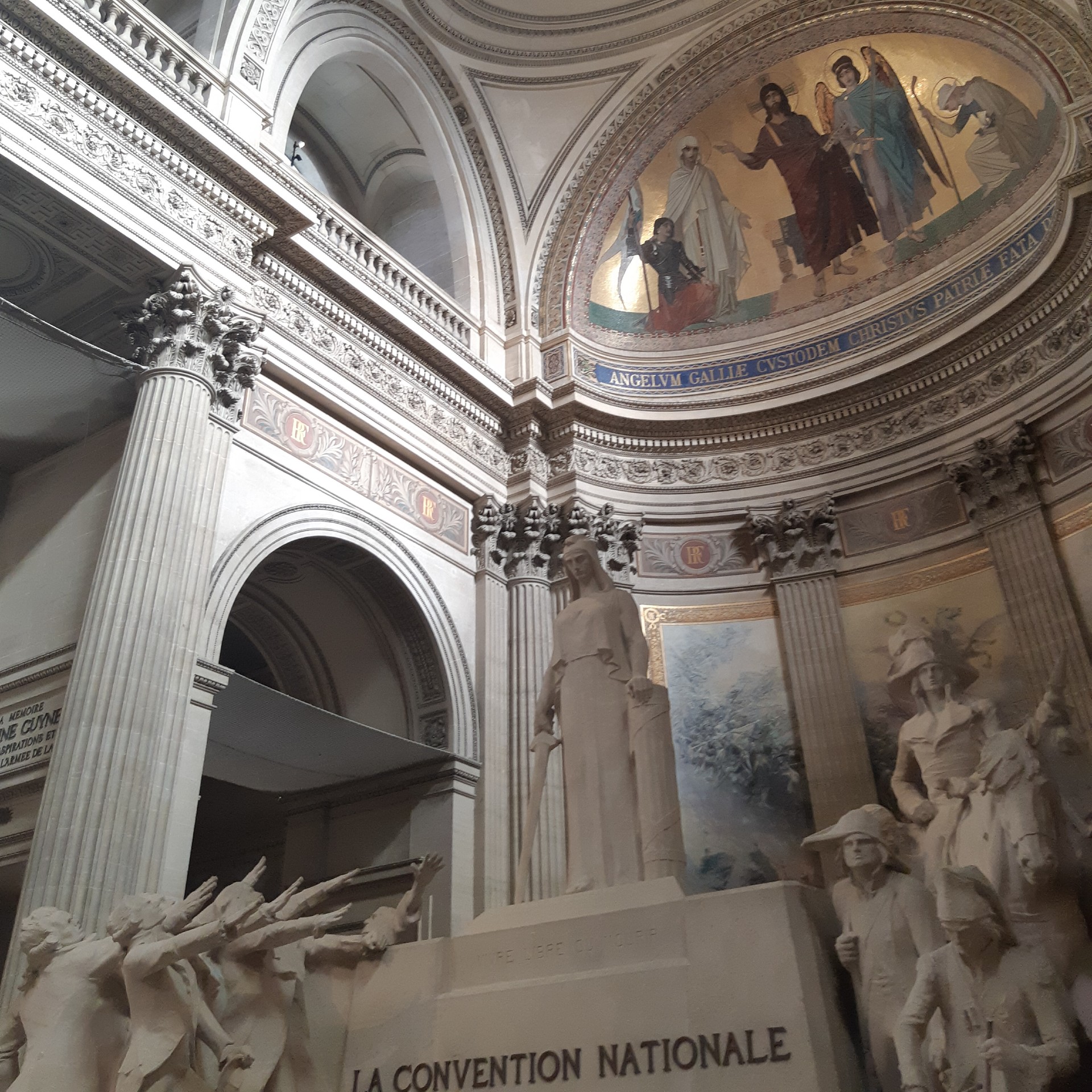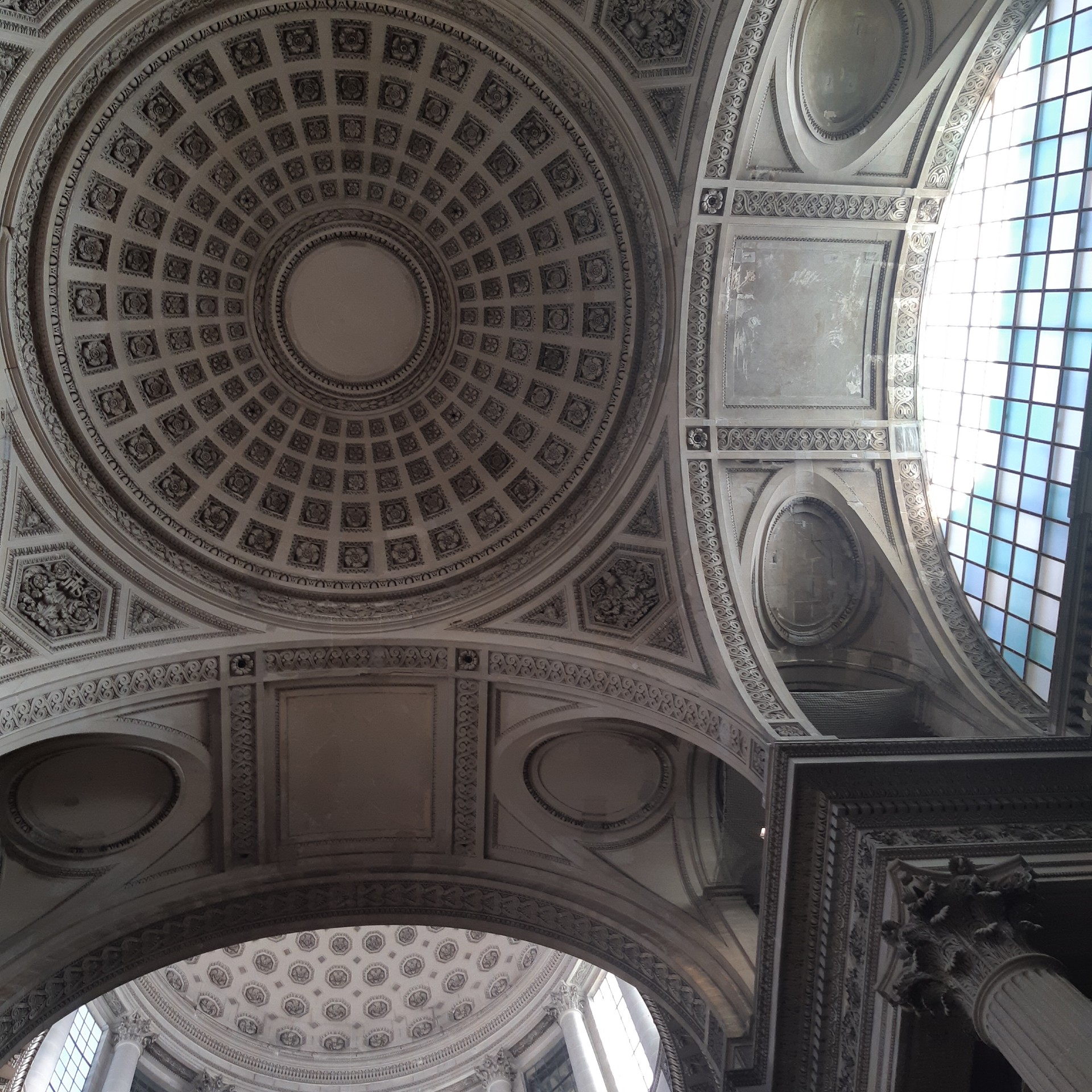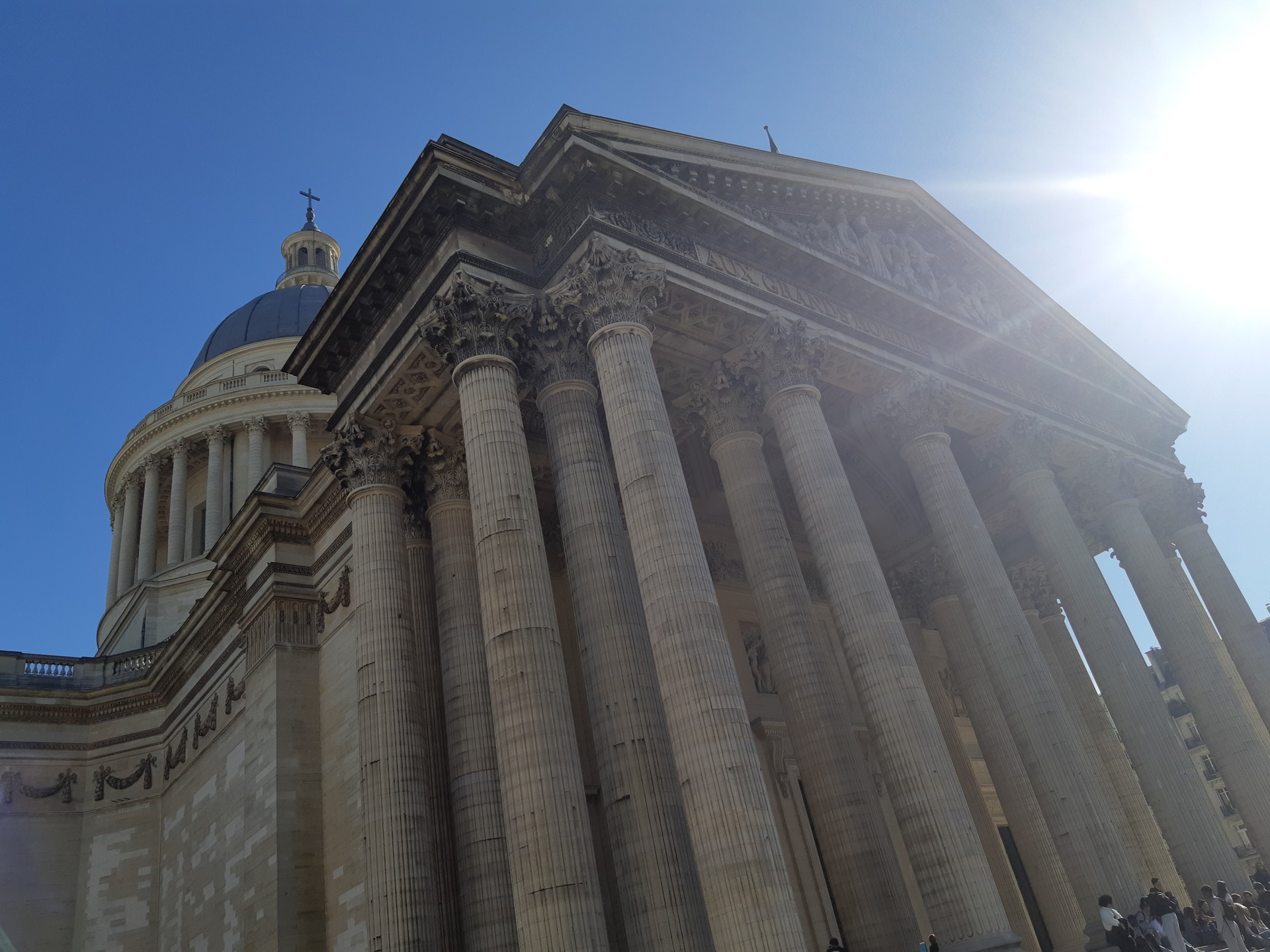Panthéon
- Address: Place du Panthéon
- Tags:
 What to see Paris,
Paris,
France
What to see Paris,
Paris,
France
- Telephone: +33 01 44 32
- Website: http://www.paris-pantheon.fr/en/
Among the Giants of the French History

If there is one place in Paris that brings together the most important events and discoveries of the French nation, it is Panthéon. It is a memorial monument where the most important people of French history are buried: from the artistic giants from the past, like Alexandre Dumas and Émile Zola, to the most recent ones, like politician Simone Veil. It is a place of great beauty, filled with symbolism and meaning; and if you are making a stop at Paris on your travels, you must definitely wander in.
Tickets and timetable
Panthéon is located in the fifth arrondissement of Paris, the so-called Latin Quarter. This area is beautiful to just get lost in and navigate the streets on which walked the great artists of Paris in the past centuries. You can find many cool coffee shops and boutiques there, but those streets also hide a lot of history. You can also find the famous La Sorbonne here.
The monument is opened every day except on the 1st of January and May, Christmas and the morning of 17th of June. In the autumn and winter (1st of October to 31st of March) is opened from 10 am to 6 pm, and in the spring and summer (from April 1st to 30th of September) is opened half an hour more. You can go inside the latest at least 45 minutes before closing time.
If you are under 26 years of age and from a country that is a member state of the European Union, you can get in for free. If you are under 26 years old but come from a country that is not a part of the European Union, you can get a reduced price of 7 EUR. If you are not under 26 anymore, the full price for you is 9 EUR.

What is really the Panthéon?
The neoclassicistic monument was built at the end of the 18th century. Over the course of time, it has served many different purposes. It was first built as a church but later became a mausoleum for the most accomplished men of the French nation (women joined in later). In the 19th century, they stopped using Panthéon as a burial place for a while, but they renewed its memorial function after the death of the great writer Victor Hugo. This is also the final resting place of Marie Skłodowska, more known by her second surname Curie. She was the first woman to be buried in the Panthéon for her contributions to science. The first woman buried in the monument, in general, was Sophie Berthelot, but she got this honour because of her husband, Marcellin, whose remains are also there.
The last two people who were transferred to the Panthéon were also a married couple: the former President of the European Parliament Simone Veil and her husband Antoine.

The pendulum
In the middle of the main hall, you will see a small golden ball on a string, slowly but surely making its way through the air. It is called the Foucault pendulum by the man who made the experiment in the middle of the 19th century; with it, he proved Galileo and Copernicus' theories about the position of Earth and sun. The pendulum is exhibited in the Panthéon in the memory of the power of science and reason.

The crypt
The Panthéon itself is very majestic, and when you walk around it you will be amazed by beautiful paintings and sculptures of many famous artists. But when you go down to the crypt, you will immediately start feeling very different. The upstairs is grandiose, but the crypt is very simple. It makes it almost hard to believe that you are actually standing just a few centimetres away from men who wrote Les Misérables and La Dame aux Camélias.
Where to go next
When you leave the building, you will probably want some fresh air. You can head out straight to the Jardin du Luxembourg, which I have already covered in one of my previous blogs. It is only a few minutes away and offers plenty of relaxing spots to sit down and observe the nature.

Photo gallery
Content available in other languages
Rate and comment about this place!
Do you know Panthéon? Share your opinion about this place.



















